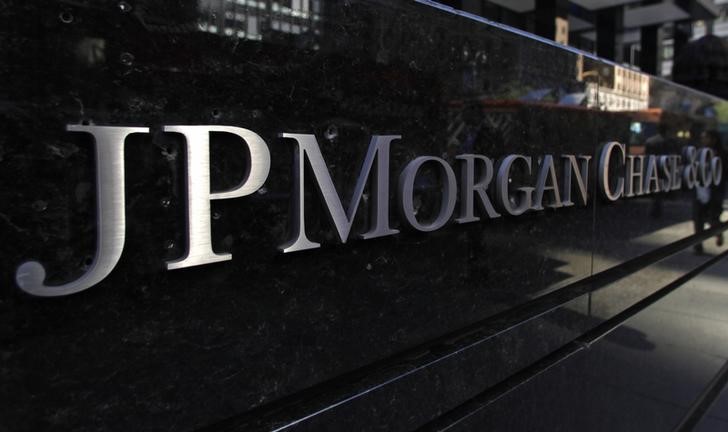By Douwe Miedema
WASHINGTON (Reuters) - JPMorgan Chase & Co bears the highest potential hazard to the financial system if it were to fail, a staff study released by a U.S. government research agency showed, providing a first-of-its-kind numerical risk ranking of U.S. banks.
The bank had a "systemic risk score" of 5.05 percent for 2013 in a group of 33 large U.S. bank holding companies, the study by staffers at the Treasury Department's Office of Financial Research (OFR) said.
The study's numerical score is a measure of a bank's risk as a ratio of the total risk contained by a worldwide group of banks. The scores are based on metrics such as size, interconnectedness, complexity and cross-border activities, OFR said. (Study: http://bit.ly/1E5MBc8)
The OFR said the study reflected the views of the authors, not of the office or the Treasury Department. The findings come as U.S. regulators seek to finalize rules for capital buffers big banks need to hold, to make them more resilient and contain systemic risk if one of them were to collapse.
The method is designed by the Basel Committee of global bank regulators, but that body does not publicly release its rankings of the riskiness of banks.
Citigroup Inc ranked second in the amount of havoc it could unleash on the financial system if it were to fail, with a score of 4.27 percent. Bank of America Corp was third at 3.06 percent, followed by Morgan Stanley and Goldman Sachs Group Inc, the study showed.
Goldman Sachs, Morgan Stanley, Bank of America and Citi declined to comment on the study. JPMorgan did not return requests for comment.
John Dearie, executive vice president for policy at the Financial Services Forum, a banking group, said the numbers did not measure whether the largest banks had become safer than before the crisis.
"It's just a ratio that assumes a constant level of aggregate risk among all large banks, which given the significant changes over the past few years, is undoubtedly not true," Dearie said.
The OFR was set up after the 2007-09 credit meltdown to help regulators detect areas of concern in financial markets.
The office has the power to retrieve bank data, including through subpoenas. It has a large degree of independence, and is funded by money levied from banks.
In 2013, it spotted risks in asset management in a report mandated by the Financial Stability Oversight Council, a group of the heads of the main U.S. regulatory agencies. The asset management report triggered attacks by the industry, which fiercely opposed any move toward tougher rules.
The latest study looked at 33 U.S. banks with assets over $50 billion. At that size, such banks are deemed "systemically important" and are subject to tighter rules. The eight largest banks in the group need to meet even tougher standards.
But size was not the only determining factor in measuring the risk in these banks, the study said.
"Several of the largest banks scored high in systemic importance because they dominate specific businesses, such as payments and asset custody services," the study said. "Others scored high in complexity because of their trading and derivatives businesses."
